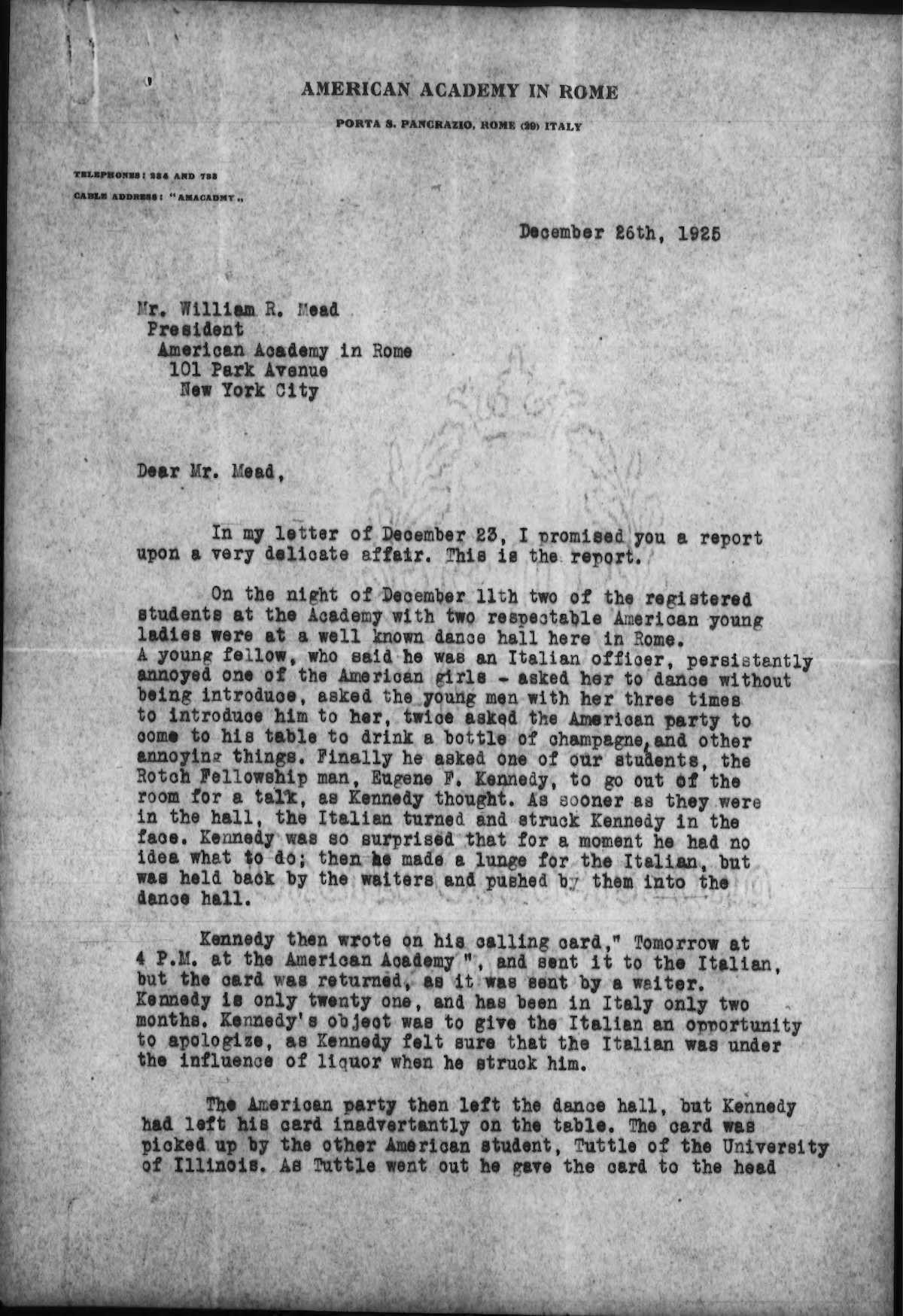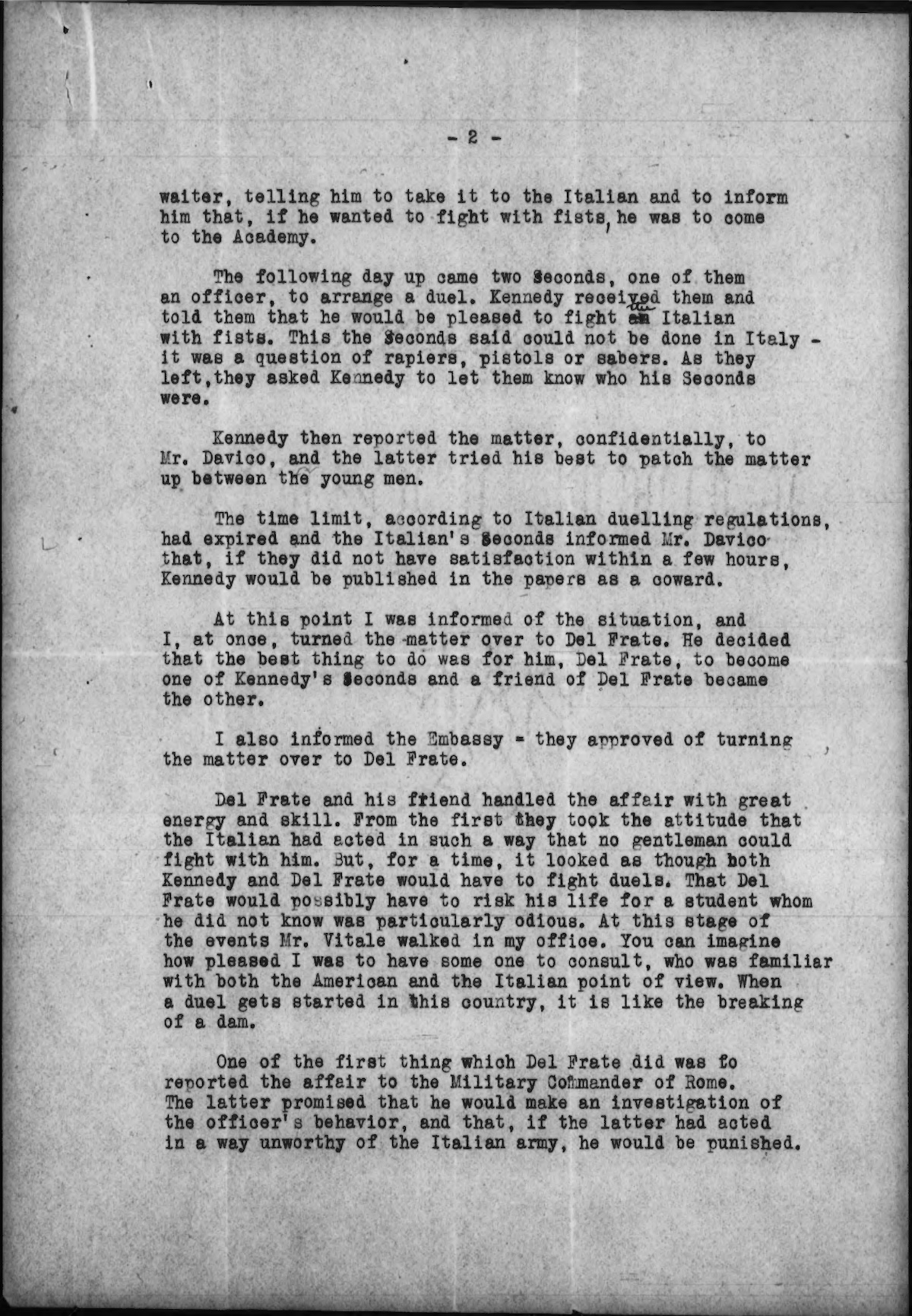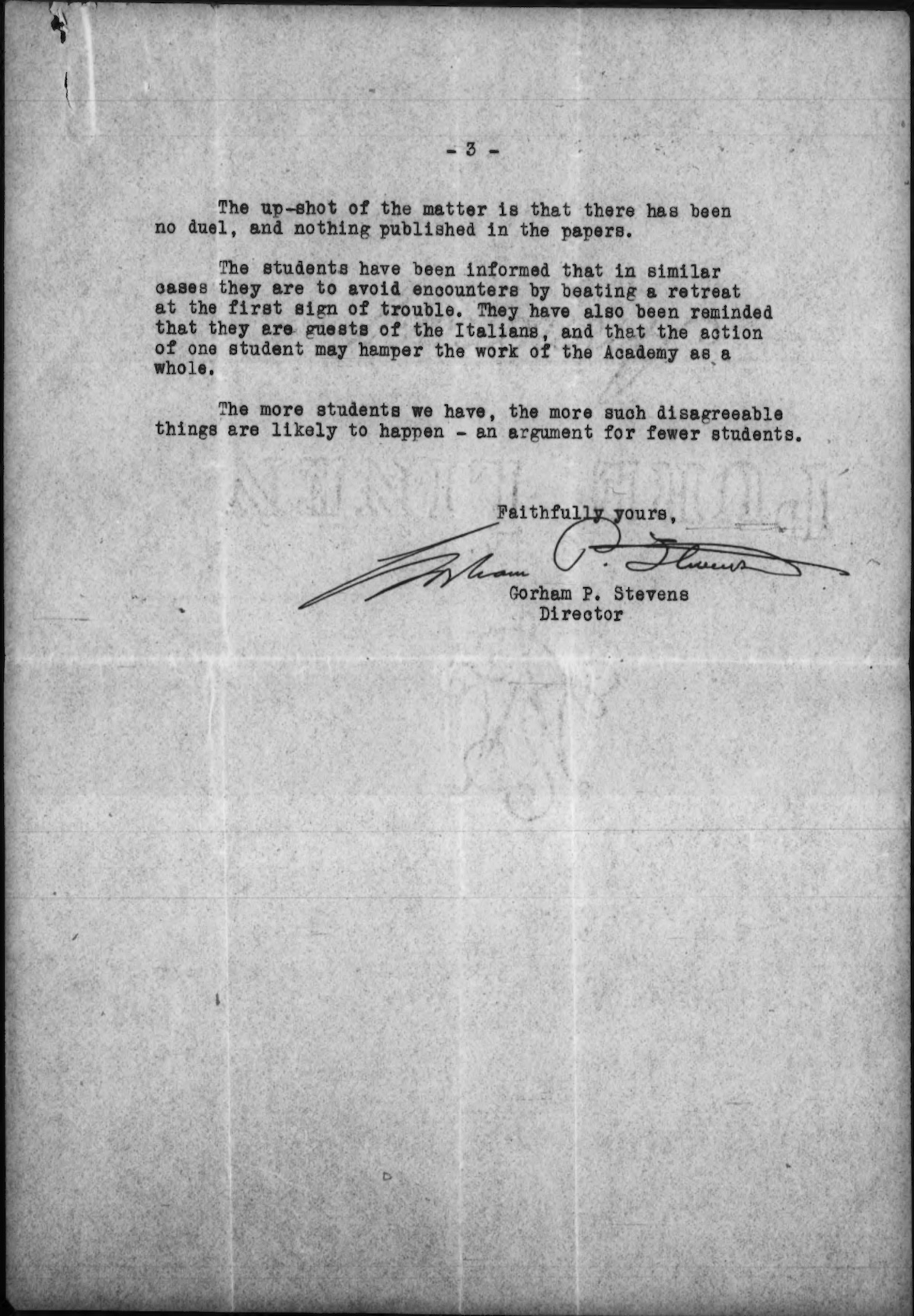On this day in 1925, an encounter between young men at a dance hall in Rome led to a fight, and the possibility of a duel, which was averted through the intervention of AAR staff, the Military Commander in Rome, and even the US Embassy. In this letter written on Boxing Day to Board President William R. Mead, the Academy's Director Gorham P. Stevens gives a report of the "delicate affair."
Director Stevens's Letter



December 26th, 1925
Dear Mr. Mead,
In my letter of December 23, I promised you a report upon a very delicate affair. This is the report.
On the night of December 11th two of the registered students at the Academy with two respectable American young ladies were at a well known dance hall here in Rome. A young fellow, who said he was an Italian officer, persistently annoyed one of the American girls – asked her to dance without being introduce[d], asked the young men with her three times to introduce him to her, twice asked the American party to come to his table to drink a bottle of champagne, and other annoying things. Finally he asked one of our students, the Rotch Fellowship man, Eugene F. Kennedy, to go out of the room for a talk, as Kennedy thought. As sooner [sic] as they were in the hall, the Italian turned and struck Kennedy in the face. Kennedy was so surprised that for a moment he had no idea what to do; then he made a lunge for the Italian, but was held back by the waiters and pushed by them into the dance hall.
Kennedy then wrote on his calling card, "Tomorrow at 4 P.M. at the American Academy", and sent it to the Italian, but the card was returned, as it was sent by a waiter. Kennedy is only twenty one, and has been in Italy only two months. Kennedy's object was to give the Italian an opportunity to apologize, as Kennedy felt sure that the Italian was under the influence of liquor when he struck him.
The American party then left the dance hall, but Kennedy had left his card inadvertently on the table. The card was picked up by the other American student, Tuttle of the University of Illinois. As Tuttle went out he gave the card to the head waiter, telling him to take it to the Italian and to inform him that, if he wanted to fight with fists, he was to come to the Academy.
The following day up came two Seconds, one of them an officer, to arrange a duel. Kennedy received them and told them that he would be pleased to fight the Italian with fists. This the Seconds said could not be done in Italy – it was a question of rapiers, pistols or sabers. As they left, they asked Kennedy to let them know who his Seconds were.
Kennedy then reported the matter, confidentially, to Mr. Davico, and the latter tried his best to patch the matter up between the young men.
The time limit, according to Italian duelling regulations, had expired and the Italian's Seconds informed Mr. Davico that, if they did not have satisfaction within a few hours, Kennedy would be published in the papers as a coward.
At this point I was informed of the situation, and I, at once, turned the matter over to Del Frate. He decided that the best thing to do was for him, Del Frate, to become one of Kennedy's Seconds and a friend of Del Frate became the other.
I also informed the Embassy – they approved of turning the matter over to Del Frate.
Del Frate and his friend handled the affair with great energy and skill. From the first they took the attitude that the Italian had acted in such a way that no gentleman could fight with him. But, for a time, it looked as though both Kennedy and Del Frate would have to fight duels. That Del Frate would possibly have to risk his life for a student whom he did not know was particularly odious. At this stage of the events Mr. Vitale walked in my office. You can imagine how pleased I was to have some one to consult, who was familiar with both the American and the Italian point of view. When a duel gets started in this country, it is like the breaking of a dam.
One of the first thing [sic] which Del Frate did was to report [sic] the affair to the Military Commander of Rome. The latter promised that he would make an investigation of the officer's behavior, and that, if the latter had acted in a way unworthy of the Italian army, he would be punished.
The up-shot of the matter is that there has been no duel, and nothing published in the papers.
The students have been informed that in similar cases they are to avoid encounters by beating a retreat at the first sign of trouble. They have also been reminded that they are guests of the Italians, and that the action of one student may hamper the work of the Academy as a whole.
The more students we have, the more such disagreeable things are likely to happen – an argument for fewer students.
Faithfully yours,
Gorham P. Stevens
Director